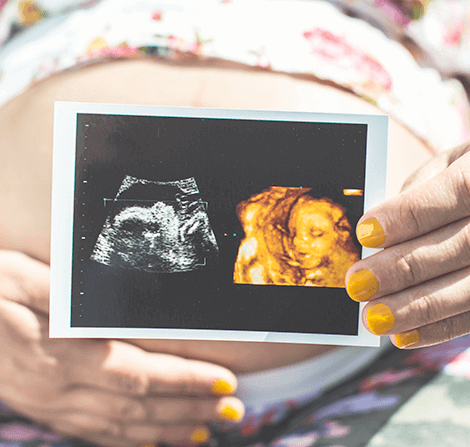Congenital Conditions of Nervous System
Congenital conditions of the nervous system consist of structural and functional anomalies
that occur during intrauterine life. Few of these can be identified prenatally or during the
antenatal period, at birth, or later in infancy or post-natal life.
Few Congenital Conditions Affecting the Nervous System Are:
-
Disorders of neural tube development - These include conditions like spina bifida and anencephaly, caused by incomplete closure of the neural tube during embryonic development.
-
Disorders of forebrain development - Such as holoprosencephaly, where the brain fails to divide properly into two hemispheres.
-
Disorders of cerebellar and brainstem development - These include conditions like Dandy-Walker malformation, affecting motor control and coordination.
-
Malformations of cortical development - These involve abnormalities in the formation of the brain's outer layer, such as lissencephaly (smooth brain).
-
Hydrocephalus and arachnoid cyst - Hydrocephalus involves an accumulation of cerebrospinal fluid in the brain, while arachnoid cysts are fluid-filled sacs that can compress neural structures.
-
Congenital anomalies of the skull - Conditions like craniosynostosis, where premature fusion of skull bones affects normal skull and brain growth.
-
Developmental encephalopathies - A group of disorders causing impaired brain function, often linked to prenatal or perinatal injury or genetic conditions.
Perinatal Acquired Conditions
Acquired perinatal conditions refer to a range of disorders that can disrupt the normal development of the central nervous system in the fetus or newborn. These conditions can arise from various acquired factors, including infections, hypoxic-ischemic encephalopathy, perinatal stroke, trauma, and exposure to toxins. External influences, such as placental health, maternal co-morbidities, environmental exposures, and social determinants of health, can also significantly impact neural development. Adverse experiences during pregnancy, such as maternal health complications or environmental stressors, may contribute to these disruptions. Common acquired perinatal conditions include cerebral palsy, which results from brain damage and affects motor control, and other neurological disorders that can have long-term developmental consequences.
Common Conditions
- Cerebral Palsy (CP): A group of disorders affecting movement and muscle tone, often resulting from brain injury or abnormal brain development. Symptoms include poor coordination, stiff or loose muscles, and tremors.
Diagnosis and Treatment
Management of perinatal conditions is individualized and focused on providing supportive therapies, medications, and, when necessary, surgical interventions to improve the quality of life. Preventive strategies are also implemented to manage the condition, and genetic testing and counseling are important tools in understanding the underlying causes and potential risks. The approach aims to optimize the health and development of the infant, while addressing any specific challenges associated with the condition.
